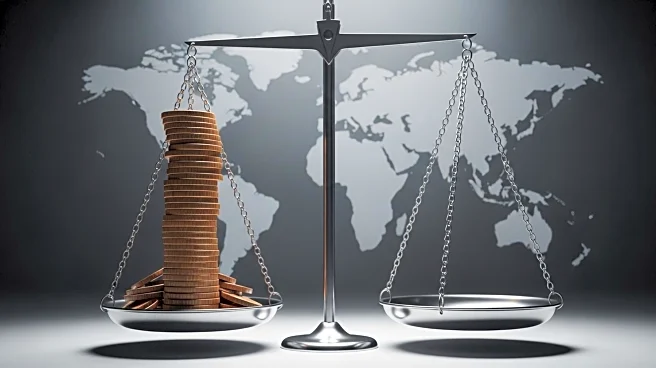What is the story about?
What's Happening?
South Korea is unable to fulfill President Trump's demand for a $350 billion upfront investment in the United States as part of a tariff reduction deal. The deal, initially agreed upon in July, aimed to lower U.S. tariffs from 25% to 15%. South Korea's National Security Adviser, Wi Sung-lac, stated that the country cannot handle such a financial outlay without risking economic instability. The investment was intended to be in the form of loans, loan guarantees, and equity rather than a cash payment. Talks to formalize the trade deal have reached a deadlock, with South Korea balking at U.S. demands for control over the funds.
Why It's Important?
The inability to meet the $350 billion demand highlights the financial strain such a requirement would place on South Korea, potentially leading to a financial crisis. This situation underscores the challenges in U.S.-South Korea trade relations and the broader implications for international economic agreements. The deadlock could affect bilateral relations and economic cooperation, impacting industries reliant on trade between the two nations. The outcome of these negotiations could set a precedent for future trade deals and influence global economic policies.
What's Next?
South Korea is exploring alternative solutions and aims to finalize the trade deal during the upcoming Asia-Pacific Economic Cooperation summit, which President Trump is expected to attend. The summit could provide a platform for further negotiations and potential resolution. The international community will be watching closely, as the outcome could influence global trade dynamics and economic strategies.

















